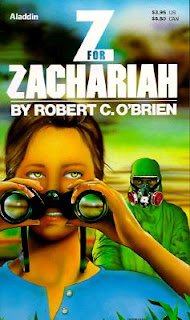Monday Musings: The Taming of the Shrew (The Great Shakespeare Reading)
Welcome to the first installment of the Great Shakespeare Reading! What is the Great Shakespeare Reading? It's an attempt to read through all of Shakespeare's plays (to satisfy the completionist and the Shakespeare lover in all of us). I'll be reading a play or two each month and then sharing my thoughts on the play(s) here on the blog. From time to time, other bloggers I know may do the same. You're welcome to join in, too! Just pick up the next play in the sequence and share your thoughts either here in the comments or on your own website (just be sure to link back here and let me know so I can read your post).
The first play we're covering is The Taming of the Shrew, but before I dive into it, let me explain why it's the first.
I know that I have favorite plays, least favorite plays, and as-yet-unread plays in Shakespeare's works. In an attempt to avoid just picking the plays I like best and then floundering out of this when I hit the plays I'm least fond of, I decided to proceed through the plays in more or less chronological order. I say more or less because there's no definite chronology of Shakespeare's works out there; and while the major ones tend to agree in the broad strokes, there's plenty of room for guesswork. So I streamlined the most scholarly timelines and came up with the following reading order:
- The Taming of the Shrew
- Two Gentlemen of Verona
- Henry VI Parts 1-3
- Richard III
- Titus Andronicus
- The Comedy of Errors
- Love's Labours Lost
- Romeo and Juliet
- Richard II
- A Midsummer Night's Dream
- King John
- The Merchant of Venice
- Henry IV Parts 1-2
- Much Ado about Nothing
- Henry V
- The Merry Wives of Windsor
- Julius Caesar
- As You Like It
- Hamlet
- Twelfth Night
- Troilus and Cressida
- Measure for Measure
- All's Well that Ends Well
- Othello
- King Lear
- Macbeth
- Timon of Athens
- Antony and Cleopatra
- Coriolanus
- Pericles, Prince of Tyre
- Cymbeline
- The Winter's Tale
- The Tempest
- Henry VIII
- Two Noble Kinsmen
Now, without further ado, The Taming of the Shrew:
Something that gets lost in many adaptations of Shrew is the so-called induction or prologue featuring the tinker Christopher Sly. Sly is a drunk who, at the behest of a passing nobleman, is dressed up in finery and convinced (by said noble's servants) that he, Sly, is a noble who has been suffering from an illness which has robbed him of his sanity these last years. As part of his trick, the nobleman has a traveling group of actors put on a play for Sly, namely the story of a shrew being tamed. After this (apart from a brief moment later in Act I), Sly and the frame story are forgotten and the play-within-a-play becomes the main action.
I confess that every time I read this play the induction makes no sense to me. It seems to be setup with no follow-through (there's not even a scene of revelation at the end of the play), almost as if Shakespeare forgot he left this initial group of characters waiting around by the time he finished writing. But a quick survey of criticism on the subject (that is, the criticism section of the play's Wikipedia page*), shows that the induction, while lacking a satisfying resolution, is crucial to reading the play. Without the idea of Shrew being a play within the play, the farcical nature of much of the action loses its distance and brings with it a more somber tone.
All of this of course comes back to the character of Katherina or Kate, the titular shrew. She is a strong-willed woman when first we meet her; sharp-tongued and physical, she is nothing like her sister, Bianca, who is so like her culture's ideal of womanhood that she incites no less than three suitors to seek her hand. But their father determines that Bianca cannot marry until Kate does, and so Petruchio sets his mind to marry Katherina. He will not be daunted by her words or her contrariness. He will win her, he says.
And after he wins her, he will tame her.
The big question (there's usually at least one in any Shakespeare play) is whether Katherina is broken by Petruchio's "taming" or saved by it. (Or, if you want a third option, if she pretends to be tamed to survive.) My mental image of the play has always been that Kate is confronted with a mirror of her harsh behavior and how it separates her from humanity, including those she loves or ought to love, like Bianca (who is distraught that Kate's behavior will thwart her own happiness as well). Petruchio's behavior towards her (proving himself capable of being just as contrary as she) reveals this to her and thus she turns away from her shrewishness to find joy.
 |
| It might be modern, but it's still Shakespeare. Mostly. |
However, this might be because I enjoy the movie 10 Things I Hate about You, which is a modernized retelling of the play. In the best interpretations, Petruchio and Kate have a quarreling couple sort of chemistry that foreshadows that of Benedick and Beatrice in Much Ado about Nothing (and this similarity also makes me want to view their relationship in a kinder light, though Petruchio and Kate only get 2 scenes in which their wit really shines).
One thing I'd like to do with this series is chart some of the recurring themes/tropes of Shakespeare's plays. To that end, here are some that I know will show up again in later plays:
- Italian setting (Padua)
- Disguises (Tranio, Lucentio, Sly, etc.) and mistaken identity (Vincentio, Sly, etc.)
- The quarreling couple (Petruchio and Katherina)
- Sassy servants (Tranio, Grumio, Biondello)
- Surprise weddings (Lucentio and Bianca)
- Crossdressing (the page in the induction; this is one of the rare instances I can think of where the male character dresses as female)
- Confusing names: Gremio (one of Bianca's suitors) and Grumio (a groom)
What do you think? Is Kate broken by Petruchio? Does she pretend to be tamed? Let me know in the comments!
*Shakespearean criticism is too dull for me to trudge through for a review. I had enough of that in grad school, thanks.



Comments
Post a Comment
What do you think?